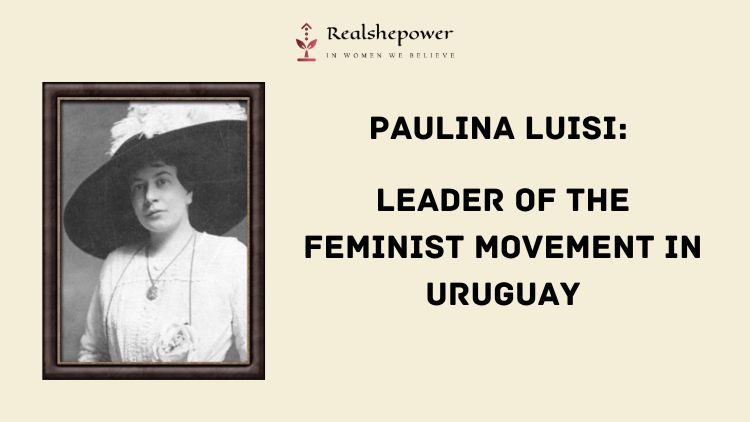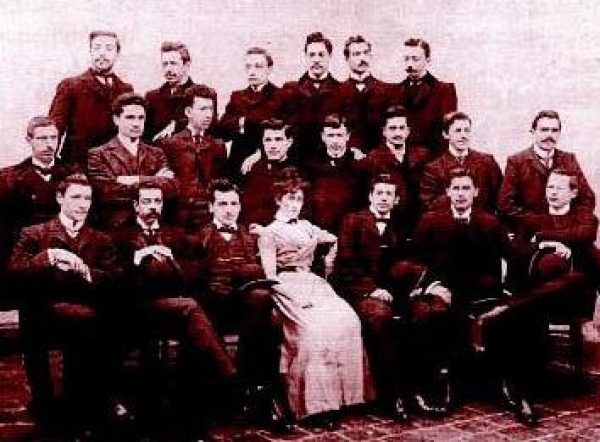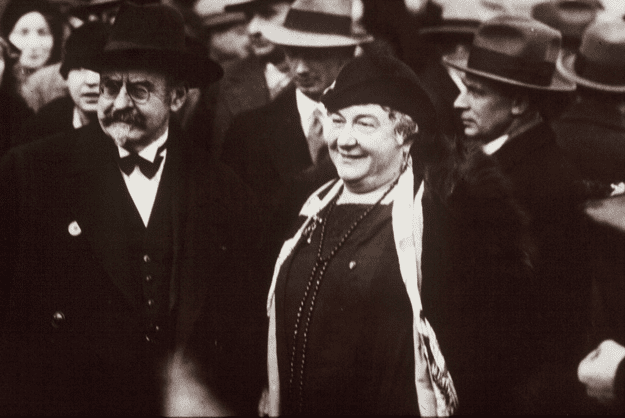Thanks To Paulina Luisi Uruguayan Women Won The Right To Vote In 1932


Paulina Luisi (1875-1940) was Uruguay’s first female doctor and a key player in the early twentieth-century feminist movement. She endured the ridicule of her peers and the prejudice of a society that was alarmed that a woman saw men naked. Paulina specialized in dermatology and venereal diseases in Paris.

She was the first Uruguayan woman to receive a bachelor’s degree (1899) and the first to graduate from medical school (1909). Even before she finished her medical degree, Paulina made public pleas for the inclusion of sexual education in Uruguayan schools, which was a novel idea at the time. She advocated for educating not just technical reproductive knowledge, but also human ethics and the consequences of uncontrolled sexual behaviour.
As a result, she thought that sex should be undertaken just for the goal of having healthy children inside a marriage. She further believed that men and women were to be held equally responsible for children in an effort to reduce society’s double standards.
While Paulina was employed at the Teacher’s Training College for Women she created a thorough sex education programme for elementary and secondary students. Some people said that her course material would prepare students for sex work because it was considered disturbing. However, in 1944, Uruguay’s public school incorporated her suggestions in the school curriculum.
Throughout her life, Paulina Luisi developed an intense work in defense of women’s rights: in freeing women from the tutorship of men and their consequent moral and intellectual growth as a person. She raised her concerns and vigorously fought for peace, against white slavery, and in defense of single mothers.
Her views on sexual education and social hygiene were inextricably linked to her efforts as a social reformer, fighting for workers’ rights and gender equality. Although she was not fully opposed to abortion (she supported them for mentally or physically defective babies), she believed that most abortions were the consequence of socioeconomic issues that might be avoided via progressive government changes. For example, if the government provided financial assistance to employees who were pregnant and had children, impoverished women would not be pushed to have abortions for financial reasons.
In the face of widespread antagonism in her own country, Paulina Luisi wielded enormous power. Her and her colleagues’ battle for women’s political rights culminated in 1932, when Uruguayan women were granted the right to vote in national elections. Her proposals on sexual education were also introduced into the curriculum of Uruguay’s public schools in 1944.

Paulina Luisi’s advocacy for women’s suffrage and equal rights lives on in history. In 1910 she was a founding member of the Socialist Party of Uruguay. She was also the leader of the Alianza Uruguaya de Mujeres, the most significant women’s organisation in Uruguay (though not the only one). She rose to prominence in international feminism as well. She became the first Latin American woman to attend the League of Nations on behalf of a government, and she served as honorary vice president at the Pan-American Women’s Conference in Baltimore in 1922. It was because of her relentless and tireless work that Uruguayan women earned the right to vote in 1932.
Paulina died in Montevideo in 1950, at the age of 75. A tree was planted in her honour in the Prado neighborhood.
References
Lavrin, Asuncion. Women, Feminism, and Social Change: in Argentina, Chile, & Uruguay, 1890-1940. Lincoln: University of Nebraska Press, 1995.
OCLC 3974291 et al, giving numerous institutional holdings. Persuasive Maps: PJ Mode Collection, #2400 (pre-publication, describing the 2nd appearance of the map).
Also Read: Lucy Stone: An Incredible Woman Denounced Misogyny, Defied Inequality, And Upheld Women’s Rights
